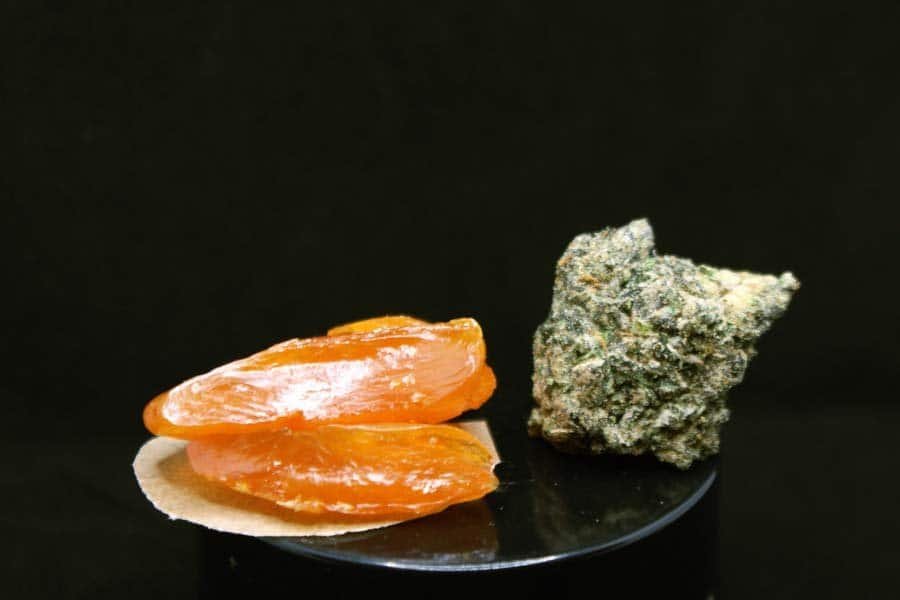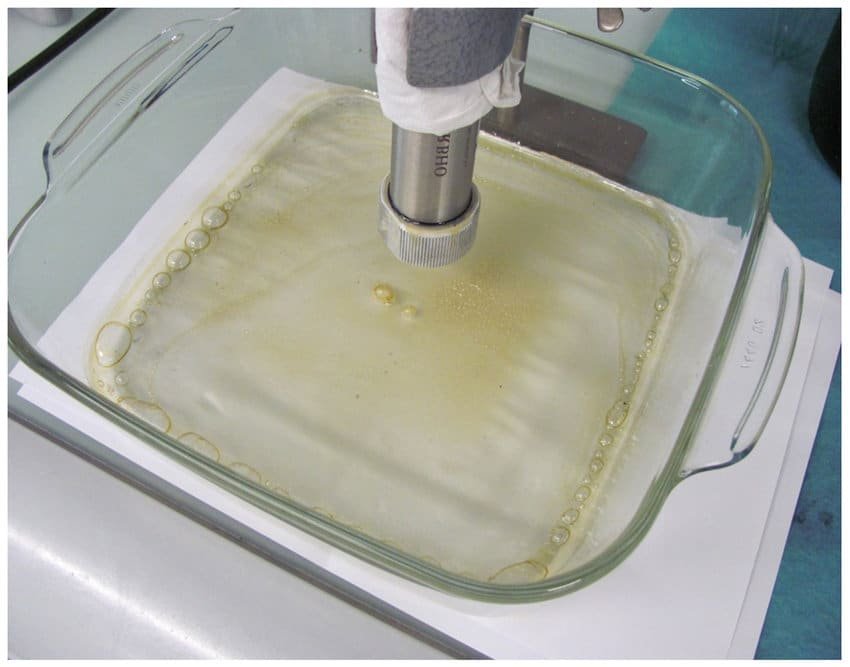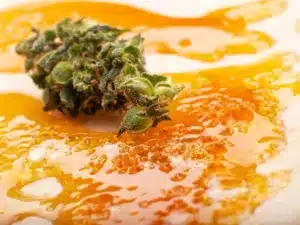In cannabis extraction, solvent-based methods are the commercial norm. Among these methods, Butane Hash Oil (BHO) and Propane Hash Oil (PHO) are the most widely used techniques. If you are weighing the PHO vs BHO comparison, this guide will help you decide. Here, we will explore both hydrocarbon extraction techniques, understanding their differences, advantages, and drawbacks.
Sections
ToggleComparing PHO to BHO

Feature | BHO (Butane Hash Oil) | PHO (Propane Hash Oil) |
Extraction Efficiency | High cannabinoid extraction with up to 70-90% THC content. It’s particularly effective at pulling out THC, CBD, and other major cannabinoids. | Slightly lower cannabinoid extraction. PHO products typically range from 60-85% THC content. |
Terpene Preservation | Highly effective in terpene preservation but still can result in loss of some terpenes. With careful temperature control, BHO can still retain a good terpene profile. | Excellent, preserves more terpenes due to lower boiling point. PHO products have a more complex and robust flavor profile. |
End Product Consistency | Consistency varies from shatter to wax to budder, producing versatile products. | Often softer, more butter-like products, excellent for creating badders, sauces, and live resins. |
Residual Solvents Risk | Moderation requires thorough purging. Due to higher boiling point, necessitates longer purging times and more precise equipment to preserve volatile terpenes. | Lower, easier to purge due to lower boiling point. Easier to remove from the final product without risking terpenes. |
Common Use | Widely used in the industry for food processing, pharmaceuticals, and medicine. | Less common, limited to high-end concentrate market. |
What Is Butane Hash Oil (BHO)?

Butane Hash Oil, commonly known as BHO, is a solvent-based cannabis extraction technique that uses butane as a solvent. In the BHO extraction method, butane is passed through cannabis plant material at low temperatures in liquid form. It dissolves trichomes from the plant material. These trichomes contain cannabinoids (like THC and CBD) and terpenes responsible for the plant’s effects and flavors.
Typically, the BHO extraction process involves follows these steps:
- The solvent is injected into the system depending on whether you use a closed-loop or open-loop extraction.
- The extraction chamber is packed with cannabis plant material.
- The extraction tube is flooded with liquid butane, which gradually dissolves the terpenes and cannabinoids from the plant material.
- The mixture of butane and extracts is separated in the filtration chamber.
- The separated extracts are then purged of any residue butane using heat and vacuum.
This process results in various forms of BHO concentrates, including shatter, wax, budder, and crumble. Further, post-processing techniques can be utilized depending on the purity and potency level required.
Pros of Butane Extraction
- High potency and efficiency: The BHO process is widely used commercially because it can produce concentrates with high cannabinoid content. BHO extracts often have potencies of 70-90% THC.
- Preserves a good amount of cannabinoids: The butane extraction process operates at low temperatures, which preserves even the most volatile cannabinoids. It preserves in full-spectrum BHO concentrates.
- Widely used in the industry: Due to its effectiveness and versatility, BHO is a standard cannabis extraction method in the industry.
Cons of Butane Extraction
- Higher risk of residual solvents: If not correctly purged, Butane is a toxic hydrocarbon. BHO can contain residual butane, so proper purging and testing are crucial. Is BHO safe or not? It depends on whether producers effectively purge butane.
- Remove some volatile terpenes: When heat is involved in the BHO extraction process, it can potentially lead to terpene loss during extraction.
- Precise temperature control: To preserve delicate compounds, the BHO process needs careful temperature management. Also, it is necessary during purging to ensure butane is removed without affecting the terpene profile.
What Is Propane Hash Oil (PHO)?

Propane hash oil, or PHO, is a cannabis concentrate made using propane as the primary solvent. PHO has properties similar to those of BHO, but the difference lies in the extraction method. For PHO, propane is used as a solvent. The process utilizes propane’s unique properties to create extracts with different characteristics.
The pho extraction process involves the following steps:
- First, cannabis plant material is loaded into a stainless steel extraction vessel.
- In the extraction chamber, liquid propane is used at a very low temperature through the plant material.
- The propane-cannabinoid solution is then collected in a separator, where it undergoes filtration to separate plant material and other contaminants.
- In the final step, the purging of propane using controlled heat and vacuum takes place, leaving behind pure extracts.
Due to propane’s lower boiling, PHO often produces more butter-like consistency than some BHO products.
Pros of Propane Extraction
- Retains more terpenes: Propane has a lower boiling point (-43.6°F or -42°C), better preserving volatile terpenes during extraction.
- Produces a lighter consistency: PHO has a softer, more malleable texture, making it ideal for certain cannabis product types and applications.
- Faster extraction process: Due to low temperature, propane extraction can be quicker than butane, potentially increasing production efficiency.
Cons of Propane Extraction
- Less common than BHO: The PHO extraction method is not as widely used as BHO because commercial propane is expensive and is 90% pure with other gases.
- Requires specialized equipment: Due to propane’s properties, standard extractors cannot be used, resulting in increased costs due to a specifically designed system.
- Can result in lower overall yields: While the PHO method can preserve more terpenes, it may not be as efficient as BHO, resulting in fewer total cannabinoids.
Which Is The Better Solvent for Cannabis Extraction?

The PHO vs. BHO choice is easy if you understand how these processes work and what products they can produce. Here are the factors influencing the choice include:
- Product goals: If terpene preservation is your priority, PHO might be preferred. But for maximum cannabinoid extraction, BHO is the best choice.
- Flavor vs. potency: Due to low-temperature requirements, PHO often produces more flavorful extracts, resulting in better terpene retention. BHO extracts, while less full-spectrum, are highly potent than PHO products due to more THC.
- Industry trends: BHO is an industry-standard with more established use in cannabis extraction, food processing, and pharmaceuticals. PHO is still in limited use, primarily by hobbyists, and is popular for its unique characteristics.
The Best of Both Worlds: A Butane and Propane Blend
Some extractors use butane and propane extraction techniques for greater efficiency and product versatility. The blend of propane and butane provides respite from the PHO vs BHO struggle, allowing more effective extraction of a broader range of compounds. Also, combining solvents can result in cannabis extracts with both high potency and rich terpene profiles. With a butane and propane blend, extractors can adjust the ratio of the solvents to achieve specific product characteristics.
Safety and Quality Assurance
BHO concentrates or PHO products, whatever product you choose, it is mandatory to ensure they are high quality and lab tested:
- Lab testing: Irrespective of your chosen product, all extracts should have undergone thorough laboratory testing. Preferably, third-party lab results indicate they are free from residual solvents and contaminants.
- Proper purging: Both BHO cannabis and PHO extracts require careful purging to remove all traces of solvents. As butane and propane are hydrocarbons, they can be toxic if ingested, so purging is mandatory for human consumption.
- Equipment maintenance: Regular maintenance and inspection of extraction equipment is essential for the safety of the workers and product quality.
Making the Right Choice: PHO vs. BHO
The choice should depend on your preferences and the type of cannabis product you are creating. Here are some factors to consider:
- For maximum potency: BHO concentrates have up to 90% THC content, making them highly potent. PHO extracts have low potency due to up to 80% THC.
- For terpene preservation: The PHO extraction method retains more terpenes due to low temperature. If you want flavor-focused products, PHO is more suitable.
- For versatility: BHO is a much more versatile process offering a wide range of end product consistencies, from shatter to budder.
- For faster processing: PHO can be quicker to extract and purge, potentially increasing production speed.
BHO still enjoys wider application as it has a long history of use in the cannabis industry. It is also a less expensive process. Still, both PHO and BHO have their application in the cannabis concentrate market. The final choice depends on specific product goals, target consumer preferences and production capabilities.




